Accredited InvestorsAltcoinAnatoli UnitskyAnti-Money Laundering (AML) In CryptoAPIArbitrageArtCoin TokenArticle DirectoryASICAuction Terminology GlossaryBasics of Stock Market InvestingBear MarketBest Crypto Payment Provider In the WorldBitcoinBlockchainBlockchain ConfirmationBlockchain Consensus MechanismBlockchain ForkBlockchain GlossaryBored Ape Yacht ClubBuild a Business That OutperformsBull MarketBuying SkyWay SharesByzantine Fault Tolerance (BFT) ExplainedCasascius CoinCentral Bank Digital Currency (CBDC)Centralized Crypto ExchangeCoinCoinsetCold WalletCollateralCommodity Futures Trading Commission (CFTC)Cross-Chain TechnologyCRUCrypto ExchangeCrypto GlossaryCrypto JokesCrypto Terms to KnowCrypto TickerCryptocurrencyCryptographyCryptojackingCryptounit BlockchainCryptounit GlossaryCryptounit ProgramdApp (Decentralized Application)Dead CoinDecentralized Exchange (DEX)Decentralized Finance (DeFi)Difference Between Bitcoin and EthereumDifferent Ways of Investing MoneyDigital CurrencyDistributed LedgerDo Your Own Research (DYOR)Dollar Cost Averaging (DCA)Dow Jones Industrial Average (DJIA)EncryptionERC-20ERC-721EthereumEvoScentFear Of Missing Out (FOMO)Fear, Uncertainty and Doubt (FUD)Fiat MoneyFNT Fintech CompanyGenesis BlockGlobal Unit PayGlossary of Banking TermsGlossary of Business TermsGlossary of Financial TermsHalvingHODLHot WalletHow Do I Start InvestingHow Rich is Satoshi Nakamoto?How to Create a BlockchainHow to Find Private InvestorsHow to Get Into FintechHow to Program Smart ContractsI Am Thrilled to Be a Part of This Global ProjectInitial Coin Offering (ICO)Initial Public Offering (IPO)Initial Token Offering (ITO)Innovation Basalt TechnologyInnovative Transportation TechnologiesInternational Bank Account Number (IBAN)Investing in Gold Mining StocksInvesting in Gold MiningJagerJoy of Missing Out (JOMO)Know Your Customer (KYC)LedgerLiquidity in CryptocurrencyMaker and Taker Fees in Crypto TradingMarket Capitalization (Market Cap)Meme CoinMetal Credit CardMetaMaskMillenials Now Have Access to Generational WealthMy Best Investment EverNew Digital EvolutionNFT GlossaryOff-Chain TransactionsOn-Chain TransactionsOpen Edition NFTPeer-to-Peer (P2P)Personal Loan GlossaryProbably the Best STO on the MarketProof of Stake (PoS)Real Estate Glossary of TermsReal Estate Investing GlossaryRebase TokenSecurities and Exchange Commission (SEC)Security Token ExchangesSecurity Token Offering (STO)Soulbound Decentralized Identities for Security TokensSoulbound ID Launch by Stobox Proves a SuccessSoulbound TokensStoboxStock Market GlossaryTestimonialsTether Platform and Token (USDT)UnitEx ExchangeUnitsky String TechnologiesUNTBUSDUValidatorWe Started Investing When We Were 25What are Blue Chip NFT?What are Blue Chip Stocks?What are Crypto Assets?What are Crypto Smart Contracts?What are CryptoPunks NFT?What are Digital Assets?What are Digital Collectibles?What are Gas Fees?What are Gas Wars?What are Hashmasks?What are Non Fungible Tokens?What are Non-Sufficient Funds (NSF)?What are Soulbound Tokens (SBT)?What are Stablecoins in Crypto?What are Transactions Per Second (TPS)?What are Utility NFTs?What are Utility Tokens?What Does Burning Crypto Mean?What Does Diamond Hands Mean?What Does Paper Hands Mean?What Does To The Moon Mean?What Does WAGMI Mean?What Happened to Satoshi Nakamoto?What is a 51% Attack?What is a Baby Boomer?What is a Backlink?What is a Banner?What is a Barcode?What is a Bid-Ask Spread in Crypto?What is a Block in Blockchain?What is a Block Reward?What is a Blockchain Address?What is a Blockchain Node?What is a Blockchain Oracle?What is a Blog?What is a Bond?What is a Bot?What is a Broker?What is a Business Accelerator?What is a Cash Cow?What is a Commercial Bank?What is a Commodity?What is a Con?What is a Credit?What is a Credit Limit?What is a Credit Rating?What is a Crypto Airdrop?What is a Crypto Bridge?What is a Crypto Scam?What is a Crypto Token?What is a Crypto Wallet?What is a Crypto Whale?What is a Crypto Winter?What is a Cryptocurrency Public Ledger?What is a Cryptocurrency Roadmap?What is a DAO?What is a Dark Pool?What is a Day Trader?What is a Dead Cat Bounce?What is a Default?What is a Derivative?What is a Digital Credit Card?What is a Fiscal Quarter?What is a Fungible Token?What is a Governance Token?What is a Grace Period?What is a Hard Fork?What is a Hot Wallet?What is a Hybrid Blockchain?What is a Hybrid PoW/PoS?What is a Joint Account?What is a Market Cap?What is a Merkle Tree in Blockchain?What is a Mining Farm?What is a Nonce? What is a PFP NFT?What is a POS System?What is a Prepaid Card?What is a Private Blockchain?What is a Private Key?What is a Public Blockchain?What is a Public Key?What is a Reserve Currency?What is a Ring Signature?What is a Routing Number?What is a Rug Pull in Crypto?What is a Safe Deposit Box?What is a Satoshi?What is a Security Token?What is a Seed Phrase?What is a Shitcoin?What is a Sidechain?What is a Soft Fork?What is a Spot Market?What is a State Bank?What is a SWIFT Code?What is a Tax Identification Number (TIN)?What is a Time Deposit?What is a Transaction Account?What is a Variable Interest Rate?What is a Virtual Assistant (VA)?What is a Virtual Card?What is a Virtual Currency?What is a Visa Card?What is a Whitelist in Crypto?What is a Whitepaper?What is Accounts Payable (AP)?What is AMA in Crypto?What is Amortization?What is an Accrual?What is an ACH Transfer?What is an Actuary?What is an Addendum?What is an Algorithm?What is an Angel Investor?What is an Annuity?What is an Asset?What is an ATM?What is an Atomic Swap?What is an Audit?What is an Avatar?What is an EIN?What is an Embargo?What is an Entrepreneur?What is an IDO (Initial Dex Offering)?What is an Interest Rate?What is an Internet cookie?What is an Investment Bank?What is an NFT Drop?What is an NFT Floor Price?What is an Ommer Block?What is an Orphan Block?What is an Outstanding Check?What is an Overdraft?What is Artificial Intelligence (AI)?What is B2B (Business-to-Business)?What is B2G (Business-to-Government)?What is Bartering?What is Bitcoin Dominance?What is Bitcoin Pizza Day?What is Blockchain Immutability?What is Blockchain Used For?What is BRICS?What is Business-to-Consumer (B2C)?What is C2C (Customer to Customer)?What is Capitalism?What is Catfishing?What is CFD Trading?What is Check Kiting?What is Cloud Mining?What is Communism?What is Content Marketing?What is Decentralization in Blockchain?What is DeFi in Crypto?What is Delisting?What is Depreciation?What is Digital Marketing?What is Diversification?What is Double Spending?What is Dumb Money?What is Dumping?What is Earnings Per Share (EPS)?What is Economics?What is Email Marketing?What is Equity?What is Etherscan?What is Fintech?What is Foreign currency?What is Forex?What is Fundamental Analysis (FA)?What is GameFi?What is Generative Art NFT?What is Gwei?What is Hard Currency?What is Hash Rate?What is Hashing in Blockchain?What is Inflation?What is Initial Game Offering (IGO)?What is Interest?What is Interest Income?What is Mainnet?What is Mastercard?What is Metaverse in Crypto?What is Mining in Cryptocurrency?What is Minting NFT?What is Mobile Banking?What is Money Laundering?What is NFT Alpha?What is NFT Metadata?What is NFT Rarity?What is NGMI Meaning?What is Nominal Interest Rate?What is Online Banking?What is Open-End Credit?What is OpenSea NFT Marketplace?What is Personal Identification Number (PIN)?What is Play-to-Earn?What is Polygon?What is Proof of Authority (PoA)?What is Proof of Work (PoW)?What is Public Key Cryptography?What is Pump and Dump?What is Quantum Computing?What is Refinancing?What is Retail Banking?What is Ripple?What is Sharding?What is Slippage in Crypto?What is Smart Money?What is Solvency?What is Soulbound ID?What is SSL?What is Staking in Cryptocurrency?What is Technical Analysis (TA)?What is Testnet?What is the Ask Price?What is the Better Business Bureau (BBB)?What is the Bid Price?What is the Dark Web?What is the InterPlanetary File System (IPFS)?What is the Gold Standard?What is the Lightning Network?What is the Prime Rate?What is the Sandbox?What is the Secondary Market?What is the World Bank?What is Tier 1 Capital?What is Tokenomics?What is TRC-20?What is Universal Banking?What is Unspent Transaction Output (UTXO)?What is Usury?What is Volatility in Crypto?What is Wash Trading?What is Web3?What is Whisper?What is XRP?What is Zero-Knowledge Proof (ZKP)?Who is Beeple?Who is Satoshi Nakamoto?Who is Vitalik Buterin?Why Tokenization is a Safe HavenWhy You Should Try Your Hand at Trading
Cold Wallet
- Home
- Cryptounit Glossary
- Cold Wallet
A crypto wallet refers to the ways to store virtual money, just like a bank account or a physical hiding place for non-virtual money. Virtual currencies can be stored in hot or cold wallets.
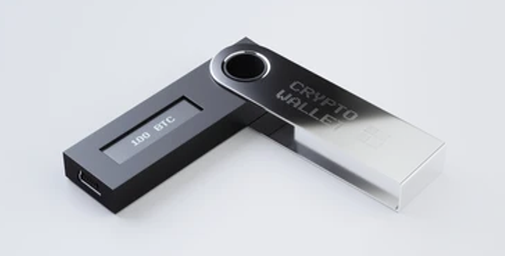
What is a Cold Wallet?
Many cold wallets (also called hardware wallets) are physical devices that look similar to a USB drive. This kind of wallet can help protect your crypto from hacking and theft, though it also comes with its own risks – like losing it, along with your crypto.
Cold wallets are not connected to the Internet, giving them an advantage over hot wallets in terms of security. Hot wallets, like any Internet-accessible service, are constantly vulnerable to Internet security risks like as hacks, phishing attempts, malware, viruses, and other assaults that might result in the irreversible loss of your cryptocurrency and digital assets.
Types of Cold Wallets
- Hardware wallets entail storing your private keys or seed phrase on a hardware device wallet.
- Paper wallets are, as the name suggests, tangible pieces of paper used to hold your private keys or seed phrase.
- A less common cold wallet method includes etching or carving your private keys or seed phrase directly onto a piece of wood or metal.
Cold vs Hot Wallets - The Main Difference
Distinguishing between hot and cold wallets is straightforward. Hot wallets are connected to the internet and include accessible software for everyday use, such as purchasing goods and services or sending small amounts of crypto to others.
On the other hand, cold wallets are typically physical hardware devices stored offline for maximum security and used for long-term storage of large digital assets.
- Security: Cold wallets are more secure due to their offline nature. Although hot wallets may have security measures in place, being connected to the internet increases the risk of hacking.
- Convenience: Hot wallets offer greater convenience as they allow for quick sending and receiving of crypto. Cold wallets prioritize security over speed.
- Cost: Hot wallets are often available for free, while cold storage using a hardware wallet may require a one-time investment. Alternately, a cold wallet can also be created for free by storing crypto keys on paper.
For a balance of security and convenience, many crypto investors use a combination of hot and cold storage. They keep a majority of their crypto in cold storage and use a hot wallet for daily transactions and smaller amounts.
Investing in a hardware wallet for cold storage is a smart consideration for the protection of your crypto assets. Its one-time cost is reasonable, especially for those making significant investments in cryptocurrency.
By combining both hot and cold wallets, the risk of crypto attacks can be reduced for both users and service providers. This approach provides the benefits of both wallets, with one used for trading and the other for secure storage.
While hot wallets were initially the more popular option, the use of cold wallets has been increasing in popularity. The integration of hot and cold wallets is also gaining recognition among crypto experts and service providers due to its numerous benefits.
The exclusive use of one type of wallet is becoming outdated as more people come to understand the value of combining hot and cold wallets for added security.
Phone as a Cold Wallet
Some individuals opt to use an additional phone as a cold wallet for their crypto assets. This secondary phone serves solely as a wallet and is only powered on during transactions. After connecting it to their main phone via Bluetooth or WiFi, they transfer a portion of their funds to a hot wallet. The secondary phone is then turned off and disconnected.
While this method is not as secure as a traditional cold wallet, it is considered a more convenient alternative to a hardware wallet and provides greater security compared to solely using a hot wallet.
Is a Wallet Necessary?
Most cryptocurrency exchanges enable users to purchase crypto upon sign up, and the holdings are stored in the exchange's built-in wallet. However, for increased security, moving the assets to a hot or cold storage wallet is recommended.
If you're using a popular exchange like Coinbase, or UnitEx and have a small amount of crypto in your portfolio, it is generally considered safe to keep your crypto on the exchange. If you are concerned about the security of your holdings and want peace of mind, consider using a hot or cold wallet. The decision to move assets to a separate wallet is a personal one.
Related Articles
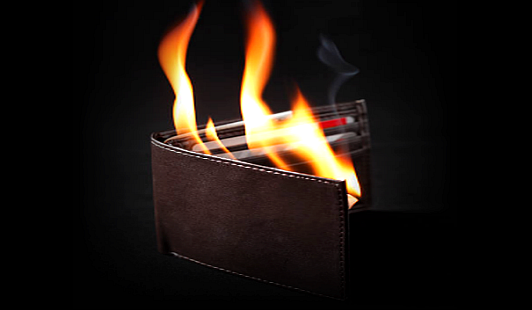
Hot Wallet
Wallets are divided into two types: hot and cold. A Hot Wallet is an Internet-connected cryptocurrency wallet.
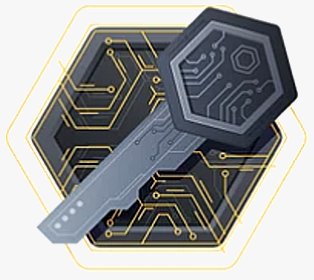
What is a Private Key?
A private key, commonly known as a secret key, is a mathematical key used to generate digital signatures and, depending on the algorithm, to decrypt messages or files encrypted with the...
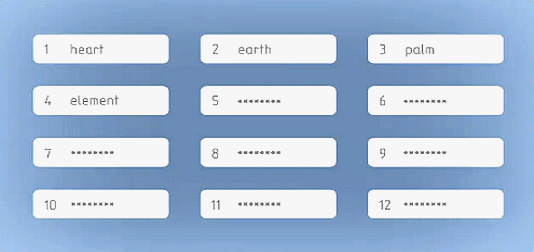
What is a Seed Phrase?
A seed phrase is a string of words that you can use to gain access to your cryptocurrency wallet.

Exchange
An Exchange is a marketplace where digital currencies and other financial instruments can be traded.
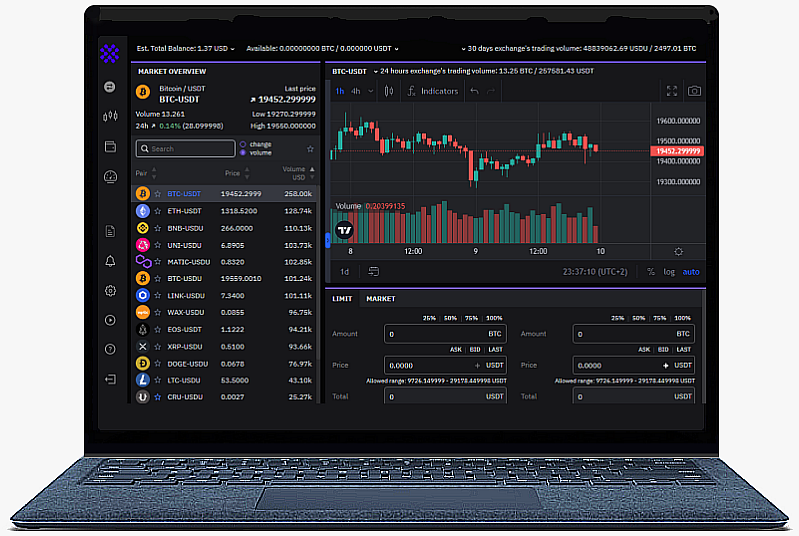
UnitEx
Integrity and highest standards to guarantee your privacy...
- Home
- Cryptounit Glossary
- Cold Wallet